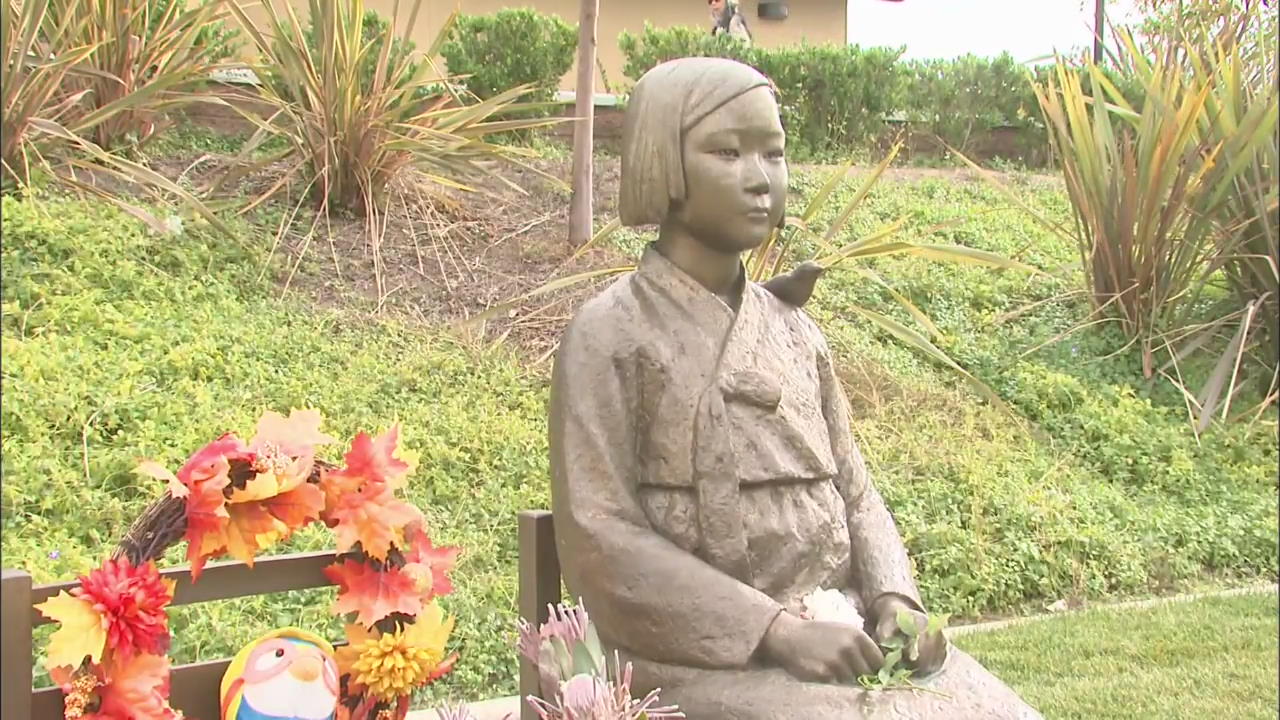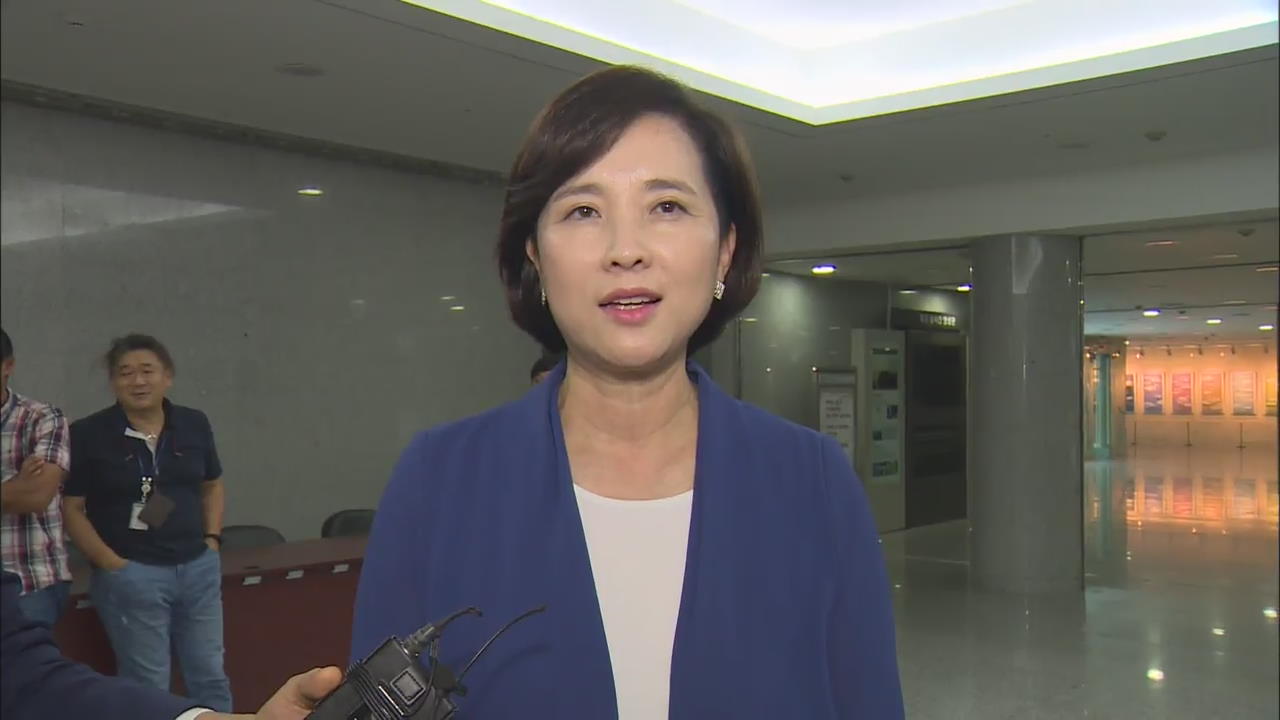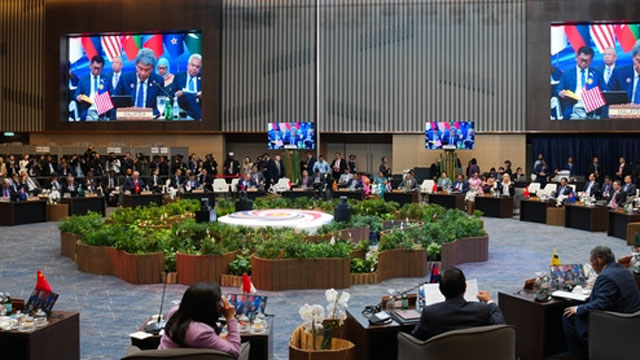Addressing the Past
입력 2018.08.31 (15:27)
수정 2018.08.31 (15:55)
읽어주기 기능은 크롬기반의
브라우저에서만 사용하실 수 있습니다.
[Anchor Lead]
The United Nations' Committee on the Elimination of Racial Discrimination has recommended the Japanese government consult the victims of its armed forces' sexual slavery and find lasting solutions to the comfort women issue. The committee also pointed out that the victims' opinions were not fully incorporated in the bilateral agreement concluded between Korea and Japan in 2015.
[Pkg]
The United Nations' Committee on the Elimination of Racial Discrimination released to the Japanese government its report on Japanese armed forces' sexual slavery during World War II. The review has been underway since August 16th. The Committee first expressed its concern that Japan had not adopted a victim-centered approach in its efforts to resolve the comfort women issue. The Committee also pointed out that the Korea-Japan agreement on comfort women concluded in 2015 did not fully consult the surviving victims and did not provide unequivocal responsibility for the human rights violations committed against these women. It recommended that the Japanese government ensures lasting solutions to the problem with a victim-centered approach and accepts its responsibility for human rights violations. While the first review in four years was underway, the Committee had also urged the Japanese government to apologize and compensate the women, as the bilateral agreement meant to settle this matter permanently with South Korea failed to console the victims and admit Japan's responsibility. The United Nations' Committee on Elimination of Racial Discrimination regularly inspects whether or not the signatories to the International Convention on the Elimination of Racial Discrimination are faithfully implementing the agreed items and makes recommendations on matters that require further measures. The recommendations are not legally binding, but the country that had received recommendations is mandated to provide its follow-up actions by the next review session. So it remains to be seen what kind of move Japan will take next.
The United Nations' Committee on the Elimination of Racial Discrimination has recommended the Japanese government consult the victims of its armed forces' sexual slavery and find lasting solutions to the comfort women issue. The committee also pointed out that the victims' opinions were not fully incorporated in the bilateral agreement concluded between Korea and Japan in 2015.
[Pkg]
The United Nations' Committee on the Elimination of Racial Discrimination released to the Japanese government its report on Japanese armed forces' sexual slavery during World War II. The review has been underway since August 16th. The Committee first expressed its concern that Japan had not adopted a victim-centered approach in its efforts to resolve the comfort women issue. The Committee also pointed out that the Korea-Japan agreement on comfort women concluded in 2015 did not fully consult the surviving victims and did not provide unequivocal responsibility for the human rights violations committed against these women. It recommended that the Japanese government ensures lasting solutions to the problem with a victim-centered approach and accepts its responsibility for human rights violations. While the first review in four years was underway, the Committee had also urged the Japanese government to apologize and compensate the women, as the bilateral agreement meant to settle this matter permanently with South Korea failed to console the victims and admit Japan's responsibility. The United Nations' Committee on Elimination of Racial Discrimination regularly inspects whether or not the signatories to the International Convention on the Elimination of Racial Discrimination are faithfully implementing the agreed items and makes recommendations on matters that require further measures. The recommendations are not legally binding, but the country that had received recommendations is mandated to provide its follow-up actions by the next review session. So it remains to be seen what kind of move Japan will take next.
■ 제보하기
▷ 카카오톡 : 'KBS제보' 검색, 채널 추가
▷ 전화 : 02-781-1234, 4444
▷ 이메일 : kbs1234@kbs.co.kr
▷ 유튜브, 네이버, 카카오에서도 KBS뉴스를 구독해주세요!
- Addressing the Past
-
- 입력 2018-08-31 15:41:12
- 수정2018-08-31 15:55:44

[Anchor Lead]
The United Nations' Committee on the Elimination of Racial Discrimination has recommended the Japanese government consult the victims of its armed forces' sexual slavery and find lasting solutions to the comfort women issue. The committee also pointed out that the victims' opinions were not fully incorporated in the bilateral agreement concluded between Korea and Japan in 2015.
[Pkg]
The United Nations' Committee on the Elimination of Racial Discrimination released to the Japanese government its report on Japanese armed forces' sexual slavery during World War II. The review has been underway since August 16th. The Committee first expressed its concern that Japan had not adopted a victim-centered approach in its efforts to resolve the comfort women issue. The Committee also pointed out that the Korea-Japan agreement on comfort women concluded in 2015 did not fully consult the surviving victims and did not provide unequivocal responsibility for the human rights violations committed against these women. It recommended that the Japanese government ensures lasting solutions to the problem with a victim-centered approach and accepts its responsibility for human rights violations. While the first review in four years was underway, the Committee had also urged the Japanese government to apologize and compensate the women, as the bilateral agreement meant to settle this matter permanently with South Korea failed to console the victims and admit Japan's responsibility. The United Nations' Committee on Elimination of Racial Discrimination regularly inspects whether or not the signatories to the International Convention on the Elimination of Racial Discrimination are faithfully implementing the agreed items and makes recommendations on matters that require further measures. The recommendations are not legally binding, but the country that had received recommendations is mandated to provide its follow-up actions by the next review session. So it remains to be seen what kind of move Japan will take next.
The United Nations' Committee on the Elimination of Racial Discrimination has recommended the Japanese government consult the victims of its armed forces' sexual slavery and find lasting solutions to the comfort women issue. The committee also pointed out that the victims' opinions were not fully incorporated in the bilateral agreement concluded between Korea and Japan in 2015.
[Pkg]
The United Nations' Committee on the Elimination of Racial Discrimination released to the Japanese government its report on Japanese armed forces' sexual slavery during World War II. The review has been underway since August 16th. The Committee first expressed its concern that Japan had not adopted a victim-centered approach in its efforts to resolve the comfort women issue. The Committee also pointed out that the Korea-Japan agreement on comfort women concluded in 2015 did not fully consult the surviving victims and did not provide unequivocal responsibility for the human rights violations committed against these women. It recommended that the Japanese government ensures lasting solutions to the problem with a victim-centered approach and accepts its responsibility for human rights violations. While the first review in four years was underway, the Committee had also urged the Japanese government to apologize and compensate the women, as the bilateral agreement meant to settle this matter permanently with South Korea failed to console the victims and admit Japan's responsibility. The United Nations' Committee on Elimination of Racial Discrimination regularly inspects whether or not the signatories to the International Convention on the Elimination of Racial Discrimination are faithfully implementing the agreed items and makes recommendations on matters that require further measures. The recommendations are not legally binding, but the country that had received recommendations is mandated to provide its follow-up actions by the next review session. So it remains to be seen what kind of move Japan will take next.
이 기사가 좋으셨다면
-
좋아요
0
-
응원해요
0
-
후속 원해요
0

















이 기사에 대한 의견을 남겨주세요.